Fritextsökning
Artiklar per år
Innehållstyper
-

Small robots to deliver pharmaceuticals to the body
Robots that can operate inside the body and a platform that combines ultrasound with AI. These are a couple of the technologies that have qualified for a list that aims to promote sustainable entrepreneurship.
-

Lucy Robertshaw: Artificial intelligence – is this really going to transform a patient’s life?
In a column Lucy Robertshaw reflects on how AI and new regulations will affect healthcare, innovation and the lives of future patients.
-

Nanoparticles to help detect pulmonary disease
Nanoparticles behave in a certain way in the air. Using this knowledge, researchers at Lund University have developed a new measurement method for lung examinations based on the phenomenon.
-

Elypta awarded one million USD from the Star Trek creator’s foundation
Swedish company Elypta, which develops methods for early cancer detection, has been awarded one million USD from an unexpected source: a foundation set up in memory of the creator of Star Trek.
-
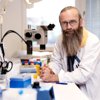
Conference on Alzheimer’s reveals several advances in the field
In Gothenburg, Sweden, researchers and pharmaceutical companies from all over the world gathered to discuss one specific issue – neurological diseases. Life Science Sweden has talked to some of those that attended the conference.
-

“An entire industry is about to be wiped out”
According to Jennie Ekbeck, CEO of Umeå Biotech Incubators, Sweden risks not having any small diagnostic companies left in five years.
-

How critical are the “Spermageddon” reports? – Researchers call for action
A much talked about meta-study indicates that sperm concentration in men’s seminal fluid has halved in 40 years. Experts in andrology that Life Science Sweden speaks to believe that the results must be taken seriously, and call for action from the Swedish authorities.
-

A surprising discovery about the immune system in cases of cancer
Professor Göran Jönsson is trying to understand why some patients benefit from immunotherapies while others don’t. A couple of years ago, he made a surprising discovery about the function of the immune system.
-

Rapid development in blood analysis – “Sweden is leading the race”
Thousands of analytical tests using just one single drop of blood. What was revealed as a hoax just a few years ago is now a reality, according to KTH professor and serial entrepreneur Mathias Uhlén.
-

Individual DNA passport could result in fewer drug side effects
You may be required to show a DNA passport when you pick up medicines at the pharmacy in the future. According to a new study, patients might suffer 30% fewer side effects if the drug treatment is adapted to their genes.
-

ALS – When the body has given up, but the brain persists
The nerve disease ALS gradually deprives the patient of control over the muscles and, eventually, also of speech. The eyes continue to function, though, and with the help of, among other things, a Swedish-developed invention, communication
-
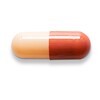
The stomach medication that became the biggest blockbuster of the 1990s
The omeprazole molecule was synthesised as early as 1979, but it took many years before the then Astra had an approved pharmaceutical. Once this happened, a tablet was available that was soon to help millions of people worldwide and break all sales
-
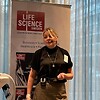
Swedish breakthrough in Alzheimer’s: “We can finally present great data”
Treatments for Alzheimer’s disease are currently among the hottest topics in drug development. Two Swedish research companies with high ambitions and successes in the field participated in Bioscience 2022 conference at Life City in Hagastaden, Stockholm.
-
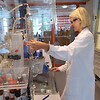
A green nursery for biotech rooted in the Scanian soil
Red Glead has established itself as one of Lund’s largest companies in pharmaceutical development. Life Science Sweden went to Skåne and met two of the founders, Johan Evenäs and Martina Kvist Reimer.
-
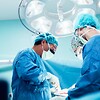
“We need to build flexible operating theatres”
Flexible operating theatres, micro-sensors on surgeons to monitor their well-being and 3D images projected onto organs to be operated on. These are a few ideas that three specialist surgeons are suggesting for the operating theatre of the future.
-
Business Sweden’s new team is rolling out the blue-yellow carpet
According to Business Sweden’s life science team, the combination of substantial medical know-how and an ever-flourishing tech sector is a success factor for Sweden. “It’s a perfect storm, a beneficent, perfect storm,” says Programme Manager Britta Stenson.
-

Bought a tablet factory – and built his own empire
In 1995, Thomas Eldered was CEO of one of Pharmacia’s factories in the Stockholm area when the Swedish pharmaceutical giant, after a takeover, decided to move its production abroad. 34-year-old Thomas was facing an imminent risk of losing his job. However, instead, it actually turned out to be the starting point for one of the biggest success stories in Swedish life science.
-
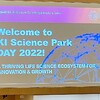
Lucy Robertshaw: Did you know Stockholm wants to be in top 5 in the world for Life Sciences?
Karolinska Institutet Solna Campus has certainly become the next “Kendall Square”, writes Lucy Robertshaw in a column.
-

Newly discovered gene variant linked to protection against abdominal obesity
American researchers believe they have identified a rare gene mutation that protects against abdominal obesity and metabolic syndrome. The ambition is that the discovery will lead to new treatments that can help reduce the risk of type 2 diabetes
-

BioVentureHub CEO: “Companies with a high degree of interaction achieve greater success”
For the first time since its inception, AstraZeneca’s BioVentureHub can now recruit new companies, as some of its tenants have grown significantly and are leaving the hub. This is the message from the biohub’s CEO Magnus Björsne in an interview, in which he also highlights a study that points out that companies with a high degree of interaction with other companies achieve greater success.
-

Tablet treatment for hair loss approved in the USA
The US Drug Administration has given a thumbs up for the first tablet treatment for spotty hair loss.
-

Collaboration for a simpler production of gene therapies launched
A collaboration between universities and companies aims at providing better production methods for the development of gene therapies. The initiative is led by Johan Rockberg, Professor at KTH.
-
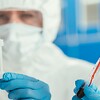
New rules for diagnostic products, but who will certify them? “An extreme shortage area”
In less than two weeks, new and stricter EU rules will enter into force for thousands of products used in important diagnoses of, among other things, cancer and Covid-19. However, not one single institute in the entire Nordic region is able to certify the diagnostics companies’ products according to the new regulations. “In the end, it risks affecting patients,” says Anna Lefèvre Skjöldebrand, CEO of Swedish Medtech.
-

Paolo Macchiarini in court – “The sole intent was to cure”
Paolo Macchiarini’s surgical procedure was illegal, life-threatening and caused severe and prolonged suffering to patients the prosecution claimed when the trial against the Italian surgeon began on Wednesday last week.